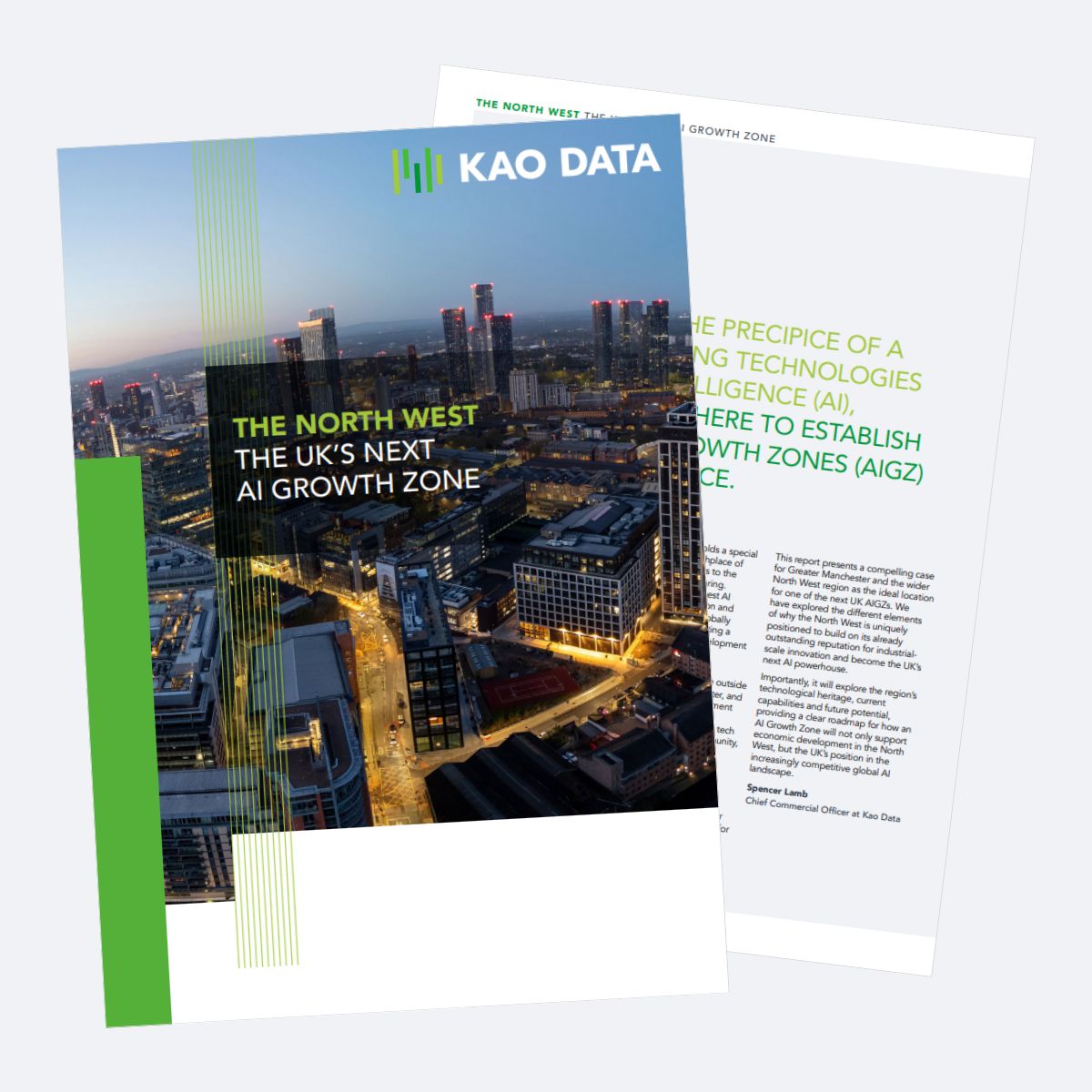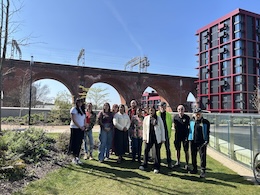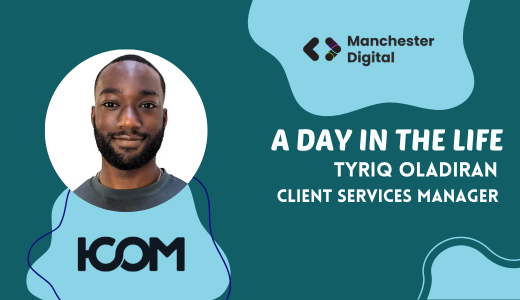
Mobile Engineers are the people responsible for developing the apps we use on our devices every day. They work closely with UX/UI teams to ensure that the app is designed in a user-centric way, and they also collaborate with other engineers to connect the app to the rest of the project infrastructure.
We spoke to three Mobile Engineers at Zühlke to find out what they do, what they enjoy about their roles, and how you can get into this field.



Seda, Mobile Engineer Ryan, Mobile Engineer Hardik, Mobile Engineer
In brief…
- Mobile Engineers are responsible for developing and maintaining apps for mobile platforms (usually Android and iOS).
- This is a collaborative specialisation: Often, Mobile Engineers will not only work alongside other Engineers, but also collaborate with UX, UI and product teams.
- While writing code is their main focus, Mobile Engineers are also tasked with ensuring that the app follows best practice in terms of both usability and platform conventions.
Why Mobile Engineering Matters
For a technology partner like Zühlke, almost every project that involves a digital experience for clients or their customers will have a mobile angle. The need for mobile-friendly approaches means that Mobile Engineers are brought into a project team right from the outset, staying involved for the design and delivery phases, and often through to the support phase too.
Ultimately, the work of a Mobile Engineer is to make a good app. And that takes a plenty consideration, as one member of the team, Seda Kunda, explains. “You want it to be great for the customer right now, and also for any future developers,” she says. The ability to change and update an app is vital, so what Mobile Engineers do in the present sets up a foundation for teams down the line too.
How Mobile Engineers Work
This role requires plenty of collaboration. Mobile Engineers work alongside other Engineers, UI/UX experts and product. teams to make sure there is a coherent experience across all touchpoints. They also partner with Business Analysts, as well as Backend and Quality Assurance teams to ensure that, at the end of the process, all the parts come together and function as one. As Ryan Collins from the Zühlke team explains, this takes plenty of communication. “You need to have a proper discourse between different disciplines to be able get clarity on each other’s requirements and make the right decisions,” he says
For Mobile Engineers, much of their role is about problem-solving. Each day they are presented with an issue to work through, from a relatively straightforward task to a complex challenge that needs to be broken down to a series of smaller actions. “That's where the bigger mobile team will come into picture – it won't be a single person's job to figure it out themselves,” says Ryan. This kind of collaborative approach is also seen in the way we produce our code at Zühlke. “We don’t just write and release – we often work in pairs, and we always get our code reviewed by colleagues,” explains fellow Mobile Engineer Hardik Trivedi.
What Makes a Good Mobile Engineer?
Part of the value a Mobile Engineer brings to their teams is the ability to listen to requests from the client and team members and assess the best way to execute these in a mobile space. That means that proficient Mobile Engineers take a meta-view of their work, not just responding automatically, but interpreting and advising too. Other specialists may not understand the guidelines and limitations of a platform, for example. As Hardik explains, “You don’t simply implement, you start with a healthy conversation that can lead to a win-win solution for everyone – a good product and good code.”
This custodian role also means that while writing code is their output, one of the main roles a Mobile Engineer plays is to be an advocate for their platform. This requires that they stay on top of trends and best practices, and ensure that what is produced follows both. As Ryan explains, “We need to make sure that our work is functional, and then that it looks and feels like an iOS or Android application too.”
How Do You Become a Mobile Engineer?
The three Mobile Engineers we spoke to each came to this role in a slightly different way. Seda and Ryan moved into Mobile Engineering after being introduced to Zühlke, Seda at the Silicon Roundabout job fair and Ryan through an internship. Hardik on the other hand went straight into the field after his degree. As Seda points out, a Computer Science background isn’t a requirement for this career. “Having a technical qualification is definitely an advantage, but you can come into this area with a passion and some focused learning too,” she says.
The Zühlke team had plenty of suggestions when asked where an aspiring Mobile Engineer could get started. Seda suggested focusing on one platform to begin with so you don’t try and do too much at once. “They’re very different, and there are pros and cons to each, so if you don’t go into that clearly you can become easily overwhelmed,” she explains. She also suggests checking out online courses like Google’s Basics in Kotlin.
Hardik’s advice is to look at an open source project on Github to get an idea of what’s underneath an app. He believes you can get plenty of good insight from looking at someone else’s code, familiarising yourself with best practice to inform your own work. He encourages aspiring Mobile Engineers to join online communities: “I always check the developers’ portal for Android and iOS (where you can also watch official events like Apple’s WWDC and Google IO), and I stay in touch with what is going on in this space through blogs and social channels by engineers at Google and Apple,” he explains.
From Ryan’s perspective, it is important to understand the architecture of your Operating System, as well as how to code for it. “You need to know how an application is built up,” he explains. From an iOS angle, he also says experience with Apple-made applications is a helpful way to see best practice design in action. Looking at a career path more broadly, he suggest finding a company that is willing to train you into the specialisation, allowing you to build on the knowledge you gain from typically more general computer science degrees.
Why Choose this Career?
Mobile Engineering is a field that is constantly moving forward. That means there are always new developments to follow, and new approaches to learn. The team we spoke to also mentioned that this fast rate of change is underpinned by extensive support by the platforms themselves. Google and Apple want the apps in their ecosystems to look good and work well, so there are plenty of resources for developers to draw on.
As a Mobile Engineer, your work isn’t abstract, or just one component in a bigger system. It impacts users directly. Hardik, for example, mentioned satisfaction he gets from knowing he is working on tools that are useful to people in their everyday lives. For many in this role, producing something you can engage with at the end of the day is the one of the aspects they like most. “I love the reward of being able to actually see an app, interact with it and see my hand in it,” Seda concludes.
If Mobile Engineering sounds like a career that is a good fit for you, get in touch with the team at Zühlke today. With a relevant background and the willingness to learn, you could grow your skills in the space, even if you only have limited exposure right now.
Inspired to join our team? Browse our open jobs here: Find your job at Zühlke.









